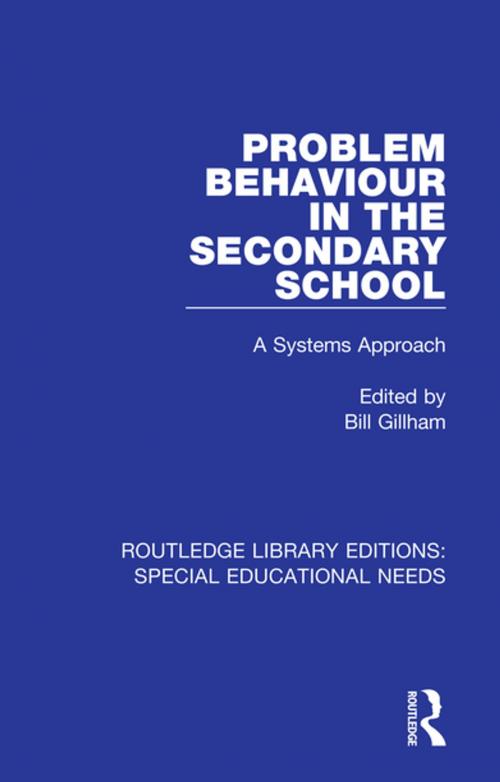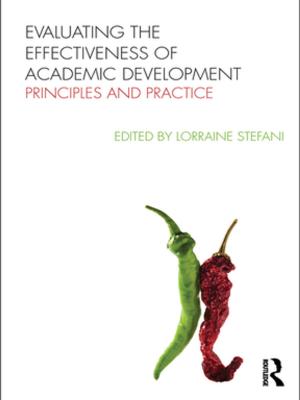Problem Behaviour in the Secondary School
A Systems Approach
Nonfiction, Reference & Language, Education & Teaching, Social & Cultural Studies, Social Science| Author: | ISBN: | 9780429994968 | |
| Publisher: | Taylor and Francis | Publication: | September 3, 2018 |
| Imprint: | Routledge | Language: | English |
| Author: | |
| ISBN: | 9780429994968 |
| Publisher: | Taylor and Francis |
| Publication: | September 3, 2018 |
| Imprint: | Routledge |
| Language: | English |
First published in 1981. The inadequacy of traditional ‘solutions’ is nowhere more apparent than in the area of problem behaviour in secondary schools. Neither tough-minded punishment nor tender-minded treatment seems to be the answer. But the practical failure is also a theoretical one, since it misconstrues the determinants of behaviour.
Taking a system perspective, Bill Gillham argues in his introductory chapter that ‘our conception of the individual has been too narrow’, so that both treatment and punishment approaches have missed out important elements in an adequate psychology of individuals: the roles they fill, the tasks they perform, the people they encounter – and the institutional settings where all these are experienced.
Drawing together a wide range of theory, evidence and practice, the present book makes out a case for a school-centred, interactionist, approach to dealing with problem behaviour.
First published in 1981. The inadequacy of traditional ‘solutions’ is nowhere more apparent than in the area of problem behaviour in secondary schools. Neither tough-minded punishment nor tender-minded treatment seems to be the answer. But the practical failure is also a theoretical one, since it misconstrues the determinants of behaviour.
Taking a system perspective, Bill Gillham argues in his introductory chapter that ‘our conception of the individual has been too narrow’, so that both treatment and punishment approaches have missed out important elements in an adequate psychology of individuals: the roles they fill, the tasks they perform, the people they encounter – and the institutional settings where all these are experienced.
Drawing together a wide range of theory, evidence and practice, the present book makes out a case for a school-centred, interactionist, approach to dealing with problem behaviour.















